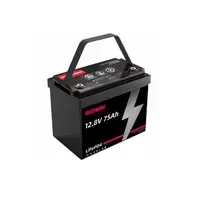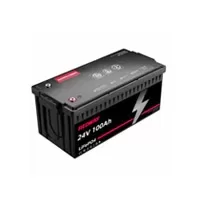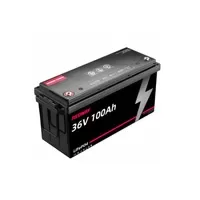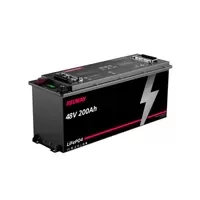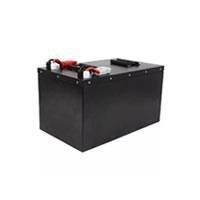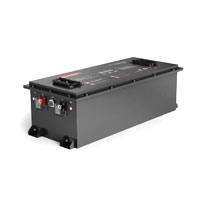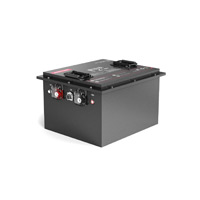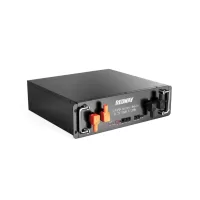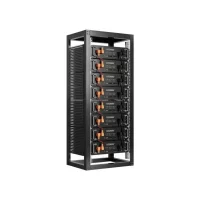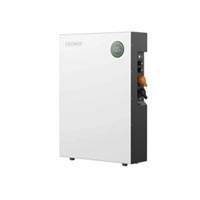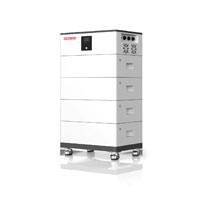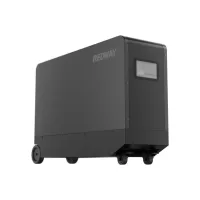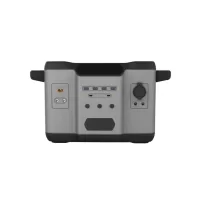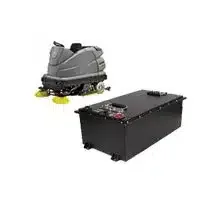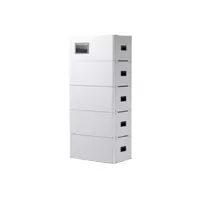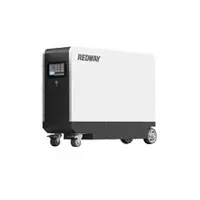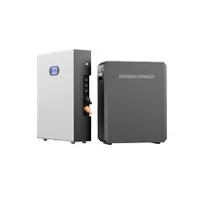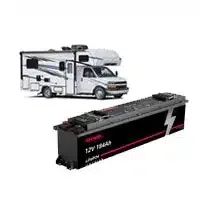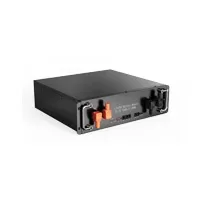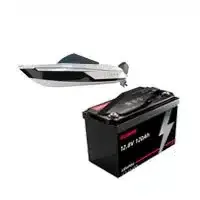Are you in need of a powerful battery for your energy needs? Look no further! In this blog post, we will delve into the world of battery capacity and voltage to help you understand just how much energy a 48V 100Ah battery can provide. Whether you’re powering up your home or running important equipment, knowing the ins and outs of kWh and Ah will give you the knowledge to make an informed decision. So let’s get started on unraveling the mystery behind these numbers and discover how they impact your power supply!
Understanding the difference between kWh and Ah
Understanding the Difference between kWh and Ah
When it comes to batteries, there are two important terms you need to know: kWh and Ah. While they may sound similar, they actually refer to different aspects of a battery’s capacity.
Let’s start with Ah, which stands for Ampere-hour. It measures how much charge a battery can hold. Think of it as the size of the fuel tank in your car – the higher the Ah rating, the more charge your battery can store.
On the other hand, kWh stands for kilowatt-hour and is a measure of energy. It tells you how much power your battery can deliver over time. To continue with our car analogy, think of kWh as how far your car can go on a full tank of gas.
To calculate the energy capacity of a 48V 100Ah battery in kWh, you need to multiply its voltage (48V) by its amp-hour rating (100Ah). This gives you 4.8kWh – an impressive amount of energy!
It’s important to note that while both Ah and kWh are measures of capacity and energy respectively, they serve different purposes when it comes to understanding batteries.
Understanding the difference between kWh and Ah is crucial in determining what kind of performance you can expect from your battery. While Ah tells you about its charge-holding capacity, kWh gives you insight into its overall power output over time. So next time you’re shopping for batteries or discussing their specifications with others, remember these distinctions!
Calculating the energy capacity of a 48V 100Ah battery
Calculating the energy capacity of a 48V 100Ah battery is essential when considering its suitability for your power needs. The voltage and ampere-hour rating provide valuable information about how much energy the battery can store and deliver.
To determine the kilowatt-hours (kWh) of a battery, we need to multiply its voltage by its ampere-hour capacity. In this case, multiplying 48V by 100Ah gives us a total of 4800 watt-hours (Wh). To convert Wh to kWh, divide by 1000. So, the energy capacity of a 48V 100Ah battery is calculated as:
4800 Wh ÷ 1000 = 4.8 kWh
This means that the battery can provide up to approximately 4.8 kilowatt-hours of electricity before needing to be recharged.
It’s important to note that other factors such as temperature conditions, discharge rate, and age may affect the actual usable capacity of the battery. It’s always recommended to consult the manufacturer‘s specifications for more accurate information regarding energy output.
By understanding how to calculate energy capacity, you can make informed decisions when choosing batteries for various applications like solar power systems or electric vehicles.
Factors that affect the energy output of a battery
Factors that affect the energy output of a battery can vary depending on various factors such as temperature, age, and usage patterns. One major factor is temperature. Extreme temperatures, whether it’s too hot or too cold, can significantly impact the performance of a battery. High temperatures can cause the battery to degrade faster and reduce its overall capacity. On the other hand, extremely low temperatures can slow down chemical reactions within the battery cells and decrease their ability to deliver power.
Another important factor is the age of the battery. Over time, batteries naturally wear out and lose their ability to hold a charge efficiently. The rate at which this degradation occurs depends on several factors including chemistry type and usage patterns. Batteries that are subjected to frequent deep discharges or charged rapidly may experience accelerated aging compared to those used in more moderate conditions.
Usage patterns also play a role in determining how much energy a battery can output. Heavy loads or continuous high-power demands require more energy from the battery, causing it to drain faster than if it were operating under lighter loads. Additionally, frequent charging cycles without allowing for proper discharge periods can gradually reduce overall capacity over time.
It’s worth noting that not all batteries are created equal when it comes to energy output efficiency. Different chemistries have different characteristics and may perform better under certain conditions than others. Factors such as self-discharge rates and internal resistance also play a role in determining how efficiently a battery converts stored energy into usable power.
To ensure optimal performance and maximize efficiency, it is essential to consider these factors when selecting and using a 48V 100Ah battery or any other size for your specific needs
Comparing 48V 100Ah batteries to other popular sizes
When it comes to batteries, size matters. Different sizes offer varying levels of capacity and voltage, making it important to choose the right battery for your specific needs. One popular battery size is the 48V 100Ah battery. But how does it compare to other popular sizes?
Let’s start by comparing it to a smaller option, such as a 12V 50Ah battery. While both have the same energy capacity (5 kWh), their voltages differ significantly. The 48V battery has four times the voltage of the 12V one, which means it can deliver more power in a shorter amount of time.
On the other hand, let’s consider a larger option like a 72V 150Ah battery. The energy capacity of this battery is slightly higher at around 10.8 kWh. However, its higher voltage also means that it requires additional safety precautions and may be less compatible with certain devices or systems.
Choosing between different battery sizes depends on your specific requirements and constraints. If you need more power in less time, the higher-voltage options like the 48V Battery are ideal choices!
Tips for maximizing the efficiency of your battery
Tips for Maximizing the Efficiency of Your Battery
1. Optimize charging habits: To maximize the efficiency of your battery, it’s crucial to follow proper charging practices. Avoid overcharging or undercharging your battery as this can reduce its overall lifespan and performance. Use a charger specifically designed for your battery type and always ensure that it is compatible with the voltage and capacity specifications.
2. Implement energy-saving measures: Reduce unnecessary energy consumption by implementing energy-saving measures in your setup. This could include using low-power appliances, turning off lights when not in use, utilizing smart power management systems, and reducing standby power consumption.
3. Maintain optimal temperature conditions: Extreme temperatures can have a significant impact on the performance and longevity of your battery. Keep your battery operating within its recommended temperature range to maximize efficiency. If necessary, consider installing cooling or heating systems to regulate the temperature if you live in an area with extreme climate conditions.
4. Regularly monitor and maintain your battery: Stay proactive by regularly monitoring the health of your 48V 100Ah battery system. Check for any signs of damage or corrosion on connectors, clean them if needed, and ensure all connections are secure. Additionally, perform regular maintenance tasks such as cleaning solar panels (if applicable) to optimize energy production.
5.
Use efficient devices/appliances: Another way to boost efficiency is by using devices/appliances that are known for their low-energy consumption rates. Look out for Energy Star-rated products that meet stringent efficiency standards set by regulatory bodies.
6.
Consider load balancing techniques: Load balancing involves equal distribution of electrical loads across multiple batteries or cells within a single bank system which helps prolong their lifespan while enhancing overall efficiency—consult experts who can guide you through this process effectively based on specific requirements,
Remember that maximizing the efficiency of a 48V 100Ah battery requires attention to detail along with regular maintenance checks; following these tips will help you make the most of your battery’s potential and optimize energy usage in the long run.
Conclusion: Choosing the right battery for your needs
Choosing the right battery for your needs is crucial when it comes to ensuring optimal energy storage and efficiency. While a 48V 100Ah battery may seem like a powerful option, it’s important to understand its capacity in terms of kWh.
In this article, we delved into the concept of battery capacity and voltage, explaining the difference between kWh and Ah. We also provided a step-by-step guide on how to calculate the energy capacity of a 48V 100Ah battery.
Factors such as temperature, discharge rate, and overall usage can significantly impact the energy output of any battery. Being aware of these factors can help you make informed decisions about which battery size best suits your specific requirements.
To put things into perspective, we compared 48V 100Ah batteries with other popular sizes available in the market. This comparison highlights that there are various options out there catering to different power needs.
Maximizing the efficiency of your chosen battery is key to prolonging its lifespan and getting the most out of it. We shared some useful tips on how you can achieve this goal – from proper charging techniques to regular maintenance practices.
Selecting the right battery involves considering several factors such as voltage requirements, desired capacity (kWh), budget constraints, and expected lifespan. Consulting with experts or seeking professional advice can be beneficial in making an educated decision tailored specifically for your unique circumstances.
Remember that every situation is different; what works for one person may not work for another. By understanding how batteries function and their associated terminology like kWh and Ah, you will be better equipped to choose wisely among available options.
So whether you’re looking for a reliable backup power solution or seeking sustainable energy alternatives for off-grid living or even exploring electric vehicle conversions – take time to research thoroughly before investing in a particular type or size of battery!
By making an informed decision based on accurate information about kWhs versus Ah ratings along with careful consideration of other relevant factors, you can ensure that the battery you choose meets your needs and performs optim


